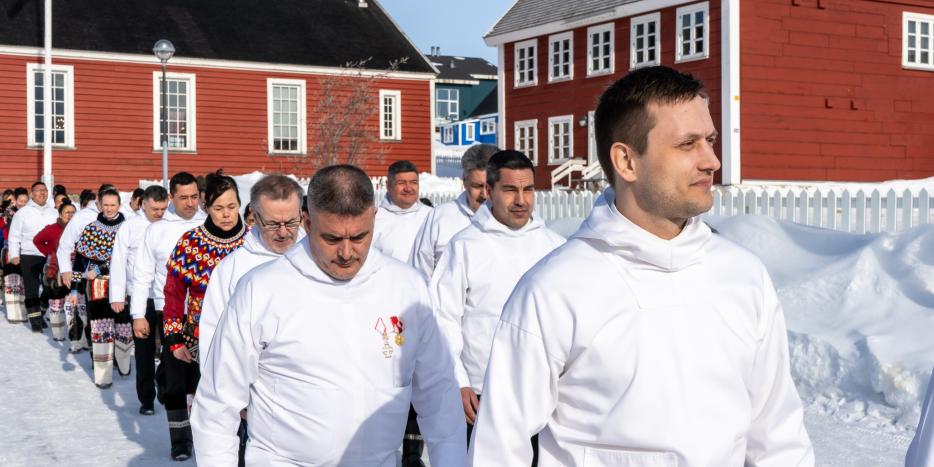Researchers warn of divisions among Greenland’s leaders – especially in relation to the United States and the issue of independence.
Greenland is in a political crisis, but only 123 people make the most important decisions.
A new study maps the Greenlandic power elite and reveals both close ties and internal fissures that could have major implications for the country’s future.
When so few people have to deal with major issues such as independence and relations with the United States, disagreement can have serious consequences, the researchers believe.
And there are clear signs of division: Those in power have widely different backgrounds and educations.
Politicians against the rest
Since the introduction of Home Rule and Self-Government, the elite has become more locally rooted in Greenland. 59 percent of the 123 people have either received their education in Greenland or grew up here.
But politicians stand out from the rest – civil servants, business leaders and managers of self-governing companies.
Politicians have a strong local connection, while people from other sectors – especially business – more often have a Danish background and live in Nuuk.
There are also significant differences in educational levels. Over half of politicians have a vocational or welfare education, while the elite outside politics typically have degrees in economics, law or administration. Only 15 percent of politicians have similar backgrounds.
This can create a divide in the way different groups view legislation and political decisions.
This is evident from the fact that an official states in the study that politicians are often “opportunistic” and “not always rational.”
Opportunistic politicians
Unlike Denmark, it is not the business community that holds most key positions in Greenland. Here, it is the political elite and people with close ties to the self-government and the bureaucracy who make most decisions.
Because politicians often have closer ties to Greenland than the rest of the elite, this can lead to conflicts of interest.
According to the researchers, politicians risk going against the rest of the elite and using the threat from the United States as leverage for their own political goals – for example, in the desire for faster independence.
– Politicians may see the current situation as a chance to push for independence. At the same time, the rest of the elite – who have closer ties to Denmark – may fear that it could lead to administrative and economic instability, the researchers write.
If the groups cannot agree, important decisions can be postponed or completely paralyzed.
The self-government has the economic power
The self-government plays a much larger role in Greenland’s economy than in Denmark.
It runs large parts of the business world itself and at the same time sets the rules of the game. This creates a risk that political considerations will hinder smaller companies.
The researchers point to the Fisheries Act as a clear example.
– The law was perceived as an advantage for the large fishing companies – at the expense of coastal fishermen. The Democrats were critical and received great support during the election campaign. But when they came to power, they chose not to change the law, the researchers write.
It gives the impression that the self-government protects its own companies – and that the large players have more influence than the small ones.
Fear of division over the US and independence
The study also warns of a possible power struggle over relations with the United States.
The researchers compare the situation to Brexit in the UK, where disagreement among the elite played a major role in the vote on the EU.
– If parts of the political elite choose to make the issue of the United States and sovereignty a political battleground, the question is whether the elite can stand together – the British business community could not do that under Brexit, the researchers write.
They also warn that differences in background and affiliation – both between sectors and ethnic groups – can make it even more difficult for the elite to find common ground.
